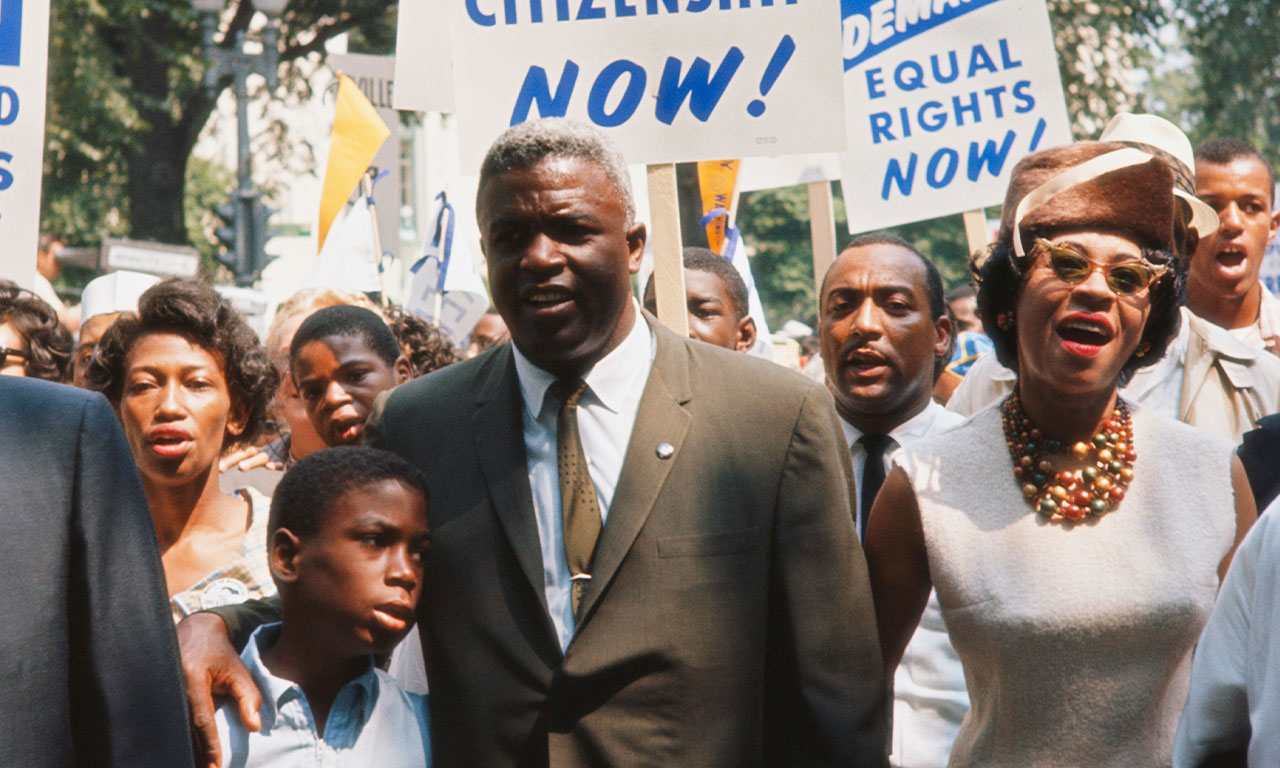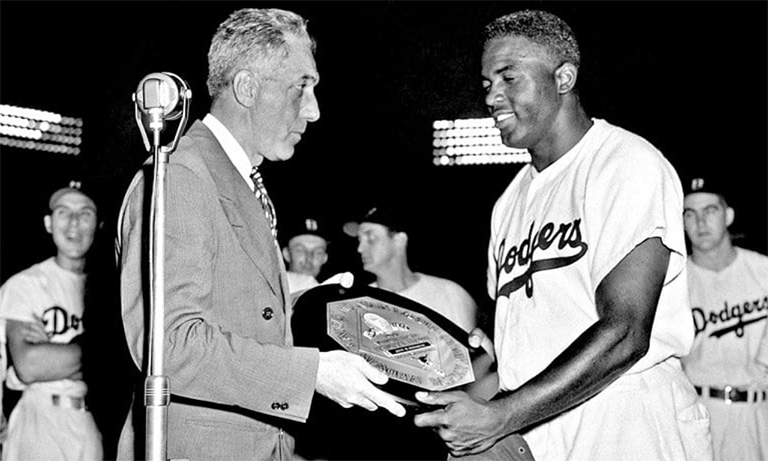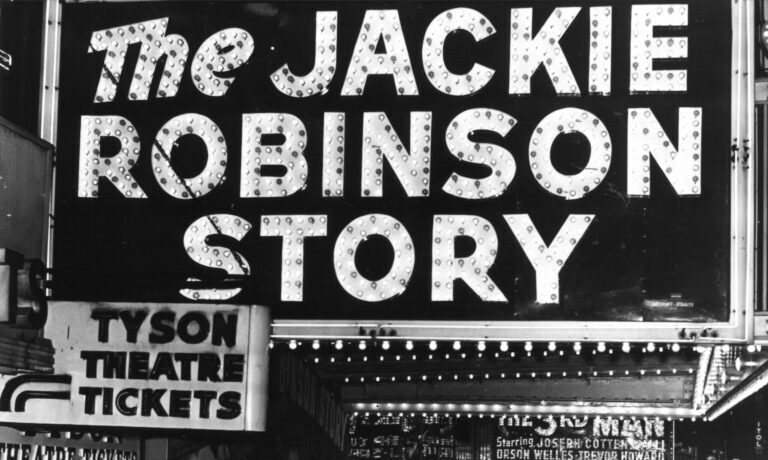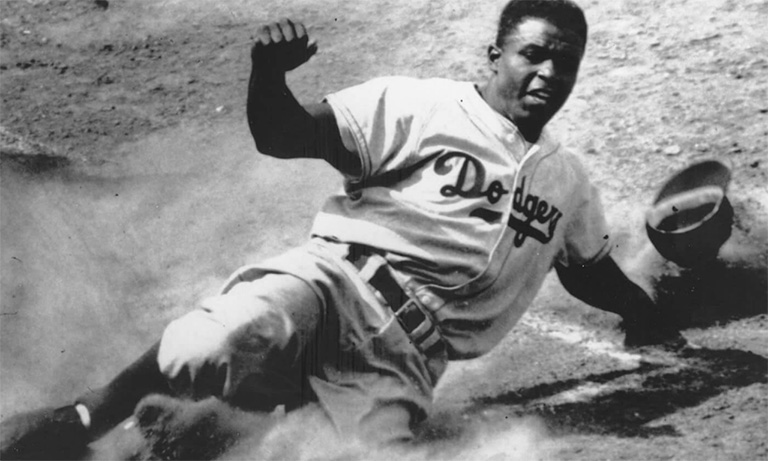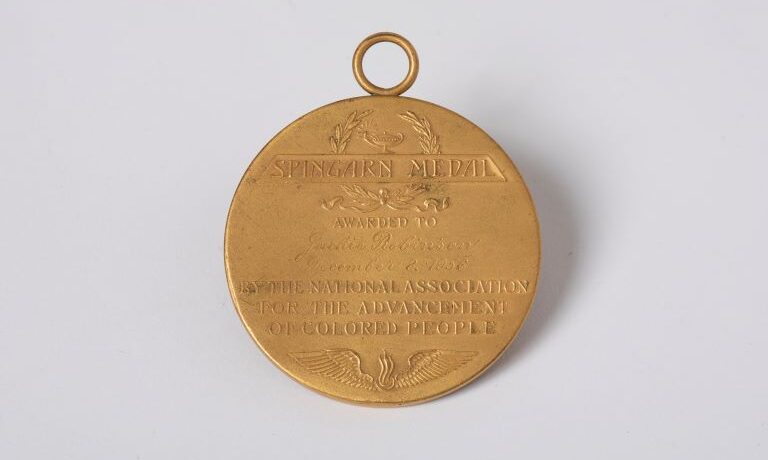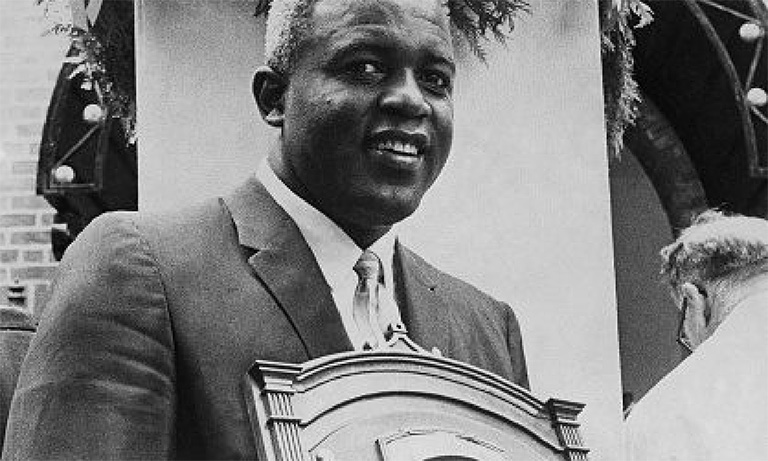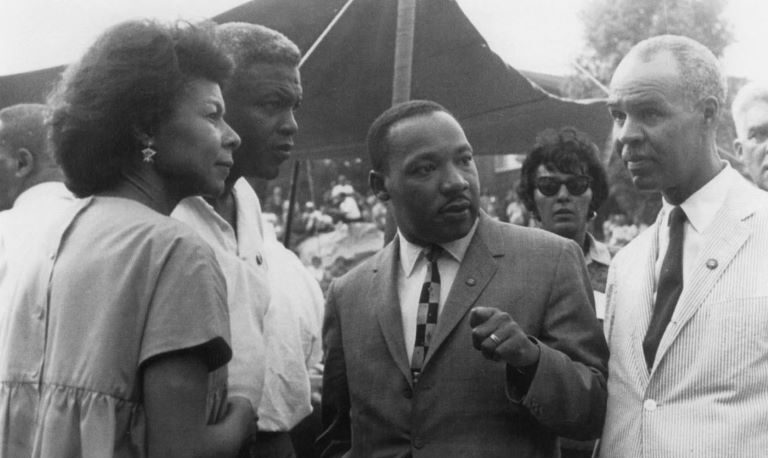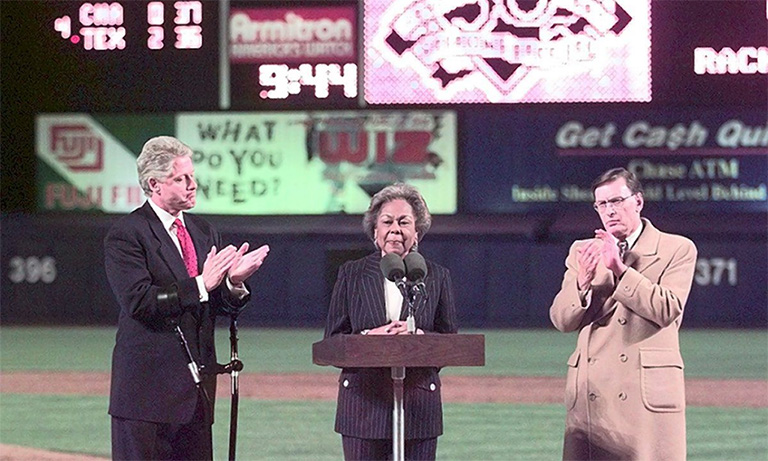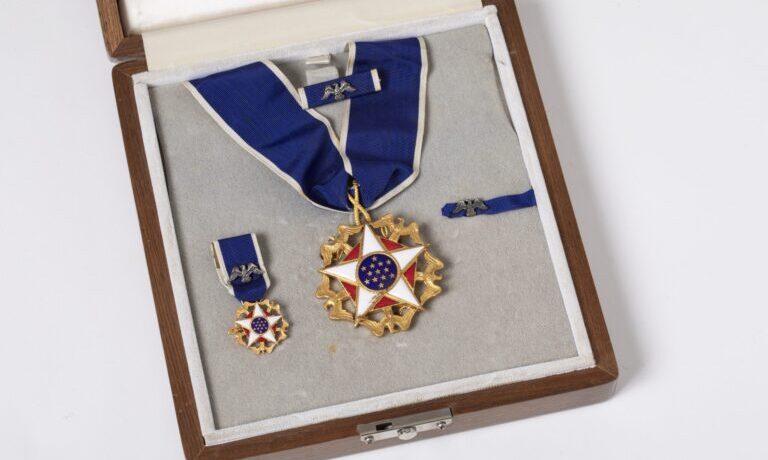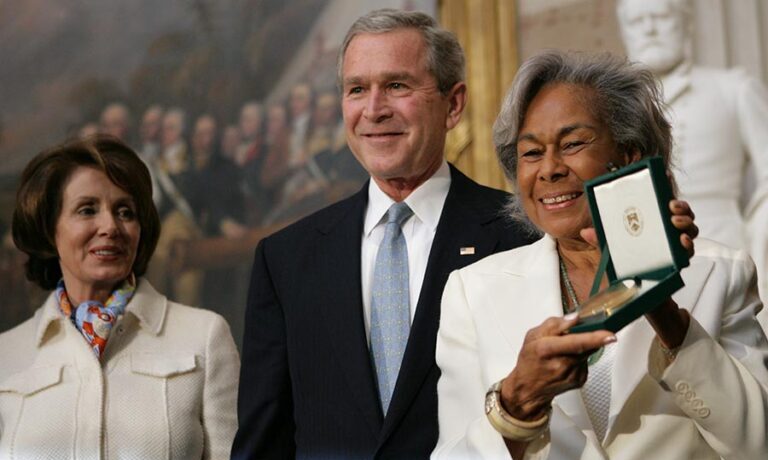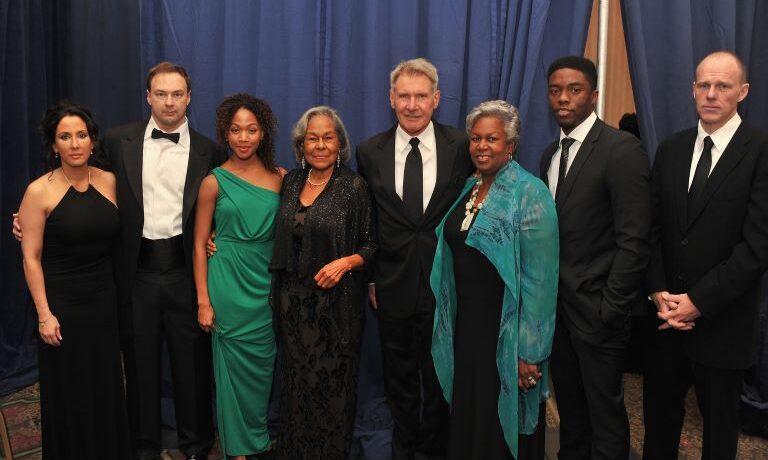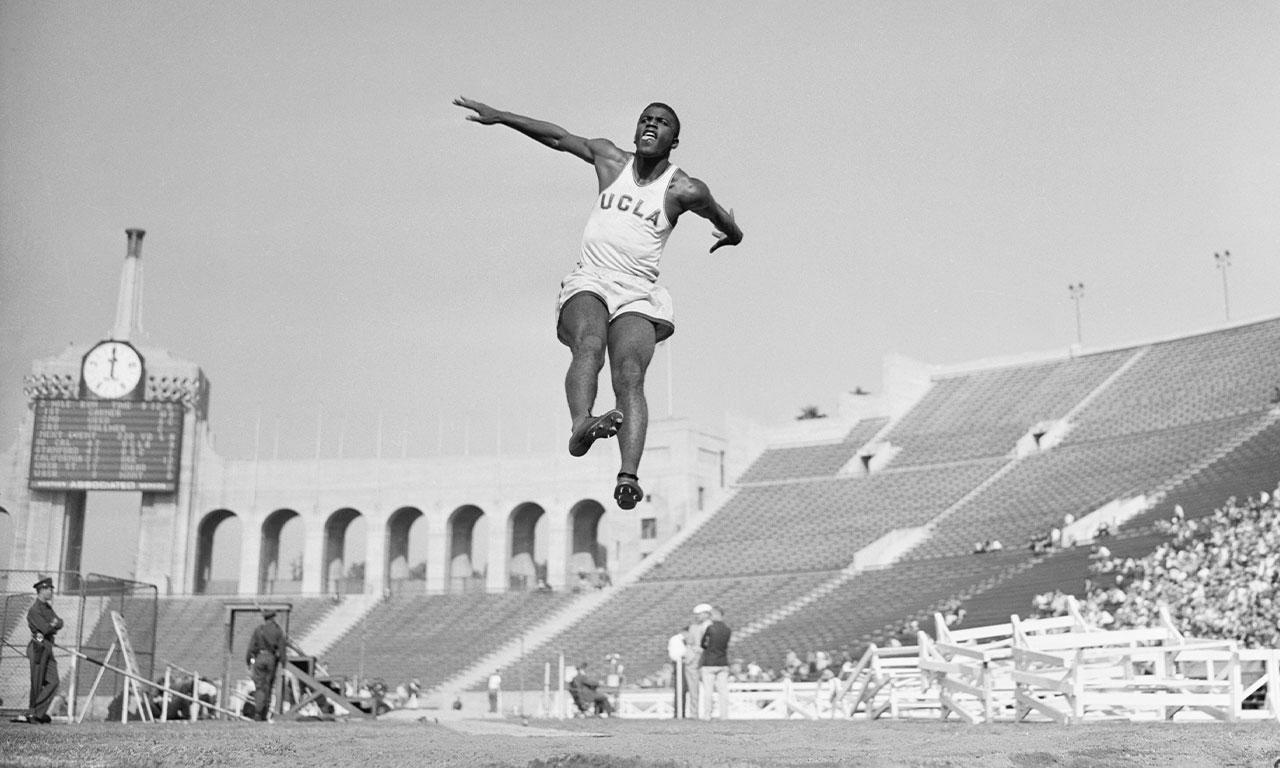
EARLY LIFE AND GATEWAY INTO SPORTS
Jackie Robinson was born on January 31, 1919, in Cairo, Georgia, the son of a sharecropper and the grandson of former slaves. Young Jackie grew up in Pasadena, California, raised by a single working mother of five. After graduating from Pasadena Junior College, Jackie attended the University of California Los Angeles. A star athlete, Jackie became the university’s first four-sport letter winner, excelling in football, basketball, track and field, and baseball. After leaving UCLA, he served in the U.S. Army during World War II, but was court-martialed and honorably discharged for standing up for his rights and refusing to move to the back of a segregated military bus.
Upon returning home from the military, Jackie Robinson set his sights on joining baseball’s Negro Leagues and began playing shortstop for the Kansas City Monarchs in 1945. Later that year, opportunity beckoned when Branch Rickey, the general manager of the Brooklyn Dodgers, invited Robinson to become the first African American to play with the all-white Dodgers’ farm team, the Montreal Royals. Anticipating the great adversity that Robinson would face as he integrated modern baseball, Rickey professed he needed a player who could bear the torment, famously telling Robinson he was “looking for a ballplayer with guts enough not to fight back.”

